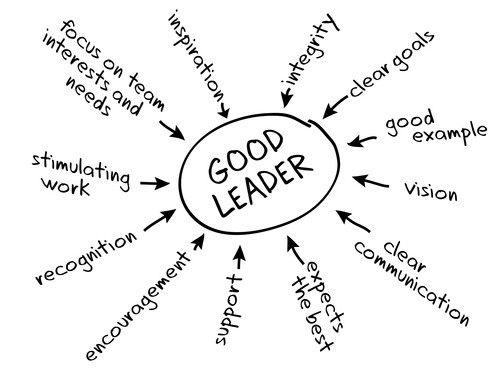
What are Some Qualities of a Good Manager and Good Leader?
Last updated on 01st Oct 2020, Artciles, Blog
What are Some Qualities of a Good Manager and Good Leader?
Just because someone is in a managerial or supervisory role, doesn’t automatically make that person a true leader. That designation is often reserved for those who display a certain set of attributes in addition to practical business skills. These leadership qualities are in high demand for good reason — they can drive organizational success and elevate employee morale. Here’s a synopsis of the qualities of a good manager.

Inspires Others
Of all the attributes that set good managers apart, this may be the most important. The ability to empower members of a team and help each individual strive for excellence is often what drives an organization’s success.1 Great leaders tap into employees’ desire to make a difference in the world and positively impact their communities.
Subscribe For Free Demo
Error: Contact form not found.
Demonstrates Honesty and Transparency
Some people talk about how honest they are, but others embody it. Good managers fall into the latter group and usually display considerable transparency about their efforts. Because of that, their supervising executives and their managed employees know that a manager can be trusted. That trust creates loyalty, which is a powerful tool in any business.
Offers a Strategic View
There’s great value in working on the details of a project, but a good manager also has the larger view about why that project is necessary, meets business goals and connects to other efforts. Employees depend on that vision and on a manager’s ability to articulate how their work fits into that bigger strategic outlook.
Communicates Effectively
If employees are struggling to understand what a manager wants then communication is sorely lacking. A good manager has solid communication skills that are tailored to each situation. For example, he or she can relay strategic goals to a boardroom full of executives and also pinpoint very specific objectives to a project team. Demonstrating proficiency in a range of communication styles is a valued soft skill.
Leads by Example
Anyone can issue orders, but a true leader knows what it’s like to be in the trenches.2 When a good manager works side by side with a team and shows up physically and mentally for every task it’s definitely noticed. Similarly, when a manager sends out project due dates and then goes missing from the office or is unavailable for questions that’s also noticed.
Makes Informed Decisions
Although delegation is important for keeping specific projects on track, a good manager understands that there are some decisions that can’t be outsourced to employees. Solid decision-making provides clarity and focus for team members and removes the type of ambiguity that might send projects reeling offtrack. Some decisions might not be so straightforward, so part of a manager’s leadership qualities is the willingness to be creative, intuitive and confident in setting a new direction.
With leadership qualities like these, the results can be profound. Not only will you excel in your chosen career, but you’ll also bring significant value to every project and team that you helm. In every industry, there’s always a high demand for good managers with the business skills that make them great leaders.
Finding, keeping and developing great people isn’t easy, but finding, keeping and developing great managers is even harder.
What employees and employers expect of managers has changed dramatically in recent times. With new styles of management required, we need to revisit what we expect of managers and how we develop them to be their best.

In this article, we’ll explore research on effective managers from Google, combined with our own research at Culture Amp to uncover the 11 essential traits of great managers.
CONTENTS
- 1. A new breed of managers: Project Oxygen
- 2. Eight common traits of high-scoring managers
- 3. Manager effectiveness
- 4. The 11 traits of great managers
- 5. How to hire great managers
- 6. Effective development for managers
A new breed of managers: Project Oxygen
Tech giant Google is a leader in the space of redefining the role of managers. They deliberately decrease the level of power and authority managers have over employees. “Managers serve the team,” says Executive Chairman Eric Schmidt. Managers aren’t focused on punishment or rewards but on helping clear blocks and inspiring their teams.
Google’s Michelle Donovan, Director of People Operations, posed the question: What if everyone at Google had an amazing manager? So Google embarked on a new project to understand what that would look like.
Project Oxygen was named in line with a trend of borrowing names from the periodic table. Donovan thought it was apt, “Having a good manager is essential, like breathing. And if we make managers better, it would be like a breath of fresh air,” she said as quoted in the book Work Rules.
Google first identified the best and worst managers. They discovered that the teams who worked for the best managers were significantly more certain that:
- Career decisions were made fairly and performance was fairly assessed
- Personal career objectives could be met, their manager was a helpful advocate
- Work happened efficiently. Decisions were made quickly, resources were allocated well and diverse perspectives were considered.
- Team members treated each other with respect and worked transparently.
- They were involved in decision-making and empowered to get things done.
- They had the freedom to balance their work and personal lives.
They verified that managers had an impact on teams by tracking employee performance based on people switching between teams with good or bad managers. They consistently found that employees in teams with better managers were more satisfied.
In order to learn what good managers were doing that made them successful, Google conducted double-blind interviews with managers about their style using the same set of questions. From the interviews, Google identified eight common traits of high-scoring managers.
Eight common traits of high-scoring managers
- 1. Be a good coach
- 2. Empower the team and do not micromanage
- 3. Express interest/concern for team members’ success and personal well being
- 4. Be very productive/results-orientated
- 5. Be a good communicator – listen and share information
- 6. Help the team with career development
- 7. Have a clear vision/strategy for the team
- 8. Have important technical skills that help advise the team
Manager effectiveness
How Culture Amp identified the most common traits of successful managers
Project Oxygen identified the core behaviors of good managers at Google. You’ll see they’re not particularly surprising (Google was similarly underwhelmed by their findings). In looking at the traits of effective managers, our data and insights team at Culture Amp took things one step further. They conducted research with customers and reviewed current academic and practitioner research.
Three more behaviors were identified:
- 1. A manager’s ability to lead through change (emotional resilience)
- 2. Treat employees fairly and encourage diversity (fair treatment)
- 3. Focus on progress, not just results (overall effectiveness).
As a result, we’ve settled on the 11 traits of great managers.
The 11 traits of great managers
1. Caring
Managers who are caring take time to get to know the individuals in their team. They’re genuinely interested in people’s success and personal well-being and show this by regularly checking in with people on how they’re going both at work and outside work.
2. Coaching
Managers who are good coaches focus on developing the people they work with as well as getting the job done. They ensure they have regular one-on-one meetings with team members and encourage them to present solutions to problems, rather than solving problems for them.
3. Communicating
Managers who are great communicators are good listeners. They allow time for others to speak. They have a clear understanding of the organization’s vision and share it with the people in their team in a way that motivates them. They keep their team up-to-date on what’s happening in the organization.
4. Development
Managers who show a genuine interest in employees’ career development acknowledge improvement (not just deliverables). They take time to discuss people’s long-term career aspirations and help them understand potential career paths at and outside the organization.
5. Emotional resilience
How a manager behaves in challenging circumstances can have a significant impact on their team. Managers who are emotionally resilient are aware of how their mood affects others. They remain calm and productive under pressure and cope well with change.
6. Fair treatment
Managers who value fair treatment will allocate tasks and set schedules keeping in mind people’s capacity and development goals. They acknowledge good work. They build a diverse and inclusive team and encourage diversity of thought.
7. Fosters innovation
Managers who foster innovation empower their teams to make decisions – and learn from failures and achievements. They don’t micromanage people. They encourage innovative ideas and approaches and help people to implement them.
8. Overall manager effectiveness
Managers who are effective help people stay motivated to do their best work. They make the people they manage feel valued and supported. They feel they’re successful when the employees they manage are successful. People willingly recommend them as a good manager.
9. Results oriented
Managers who are results oriented ensure that performance standards are maintained. They work with team members to help remove blockers impending tasks being completed and help the team get workable outcomes from team meetings.
10. Technical capability
Managers with the required technical capability add value to their teams. They can roll up their sleeves and work alongside the team when necessary. They empathize with the challenges the team face and have the necessary skills to help devise solutions.
11. Vision and goal setting
A manager ensures the vision and strategy of the organization is translated into an actionable vision and strategy for the team. They help people understand how their role contributes to the organization’s success.
Are you looking training with Right Jobs?
Contact Us- Leadership Vs Management
- How To Get IT Service Management Certification
- Importance of Tuckman ladder model in HR management
- What Is Strategic Enterprise Management and its Components?
- Top Leadership Theories Every Manager Should Know
Related Articles
Popular Courses
- Business Analyst Online Training
11025 Learners - Qa Training
12022 Learners - Salesforce Developer Training
11141 Learners
- What is Dimension Reduction? | Know the techniques
- Difference between Data Lake vs Data Warehouse: A Complete Guide For Beginners with Best Practices
- What is Dimension Reduction? | Know the techniques
- What does the Yield keyword do and How to use Yield in python ? [ OverView ]
- Agile Sprint Planning | Everything You Need to Know

